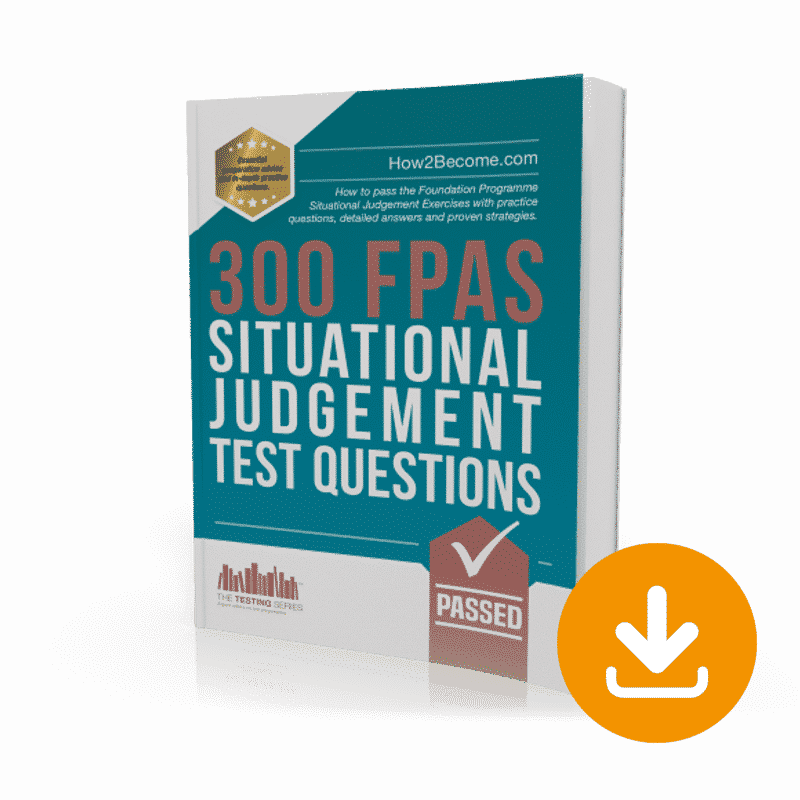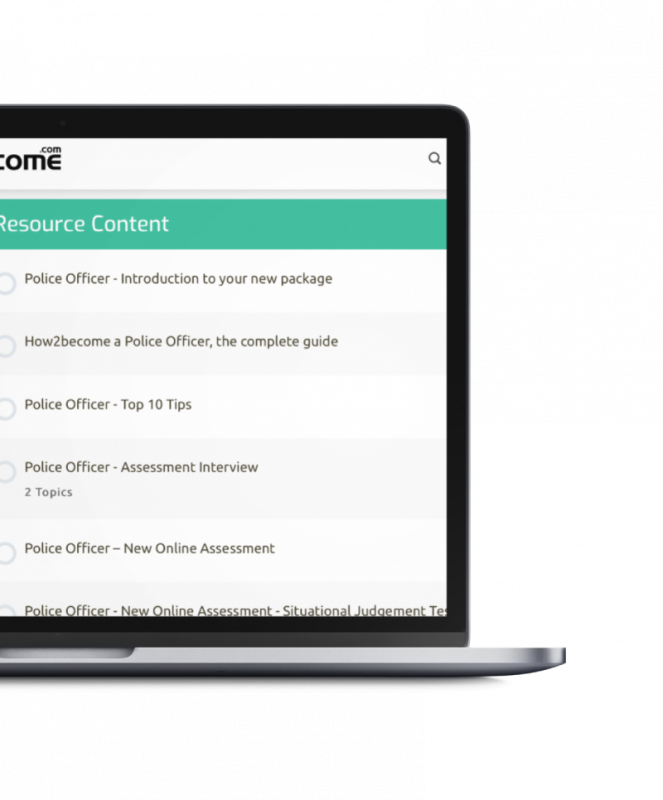
FOUNDATION PROGRAMME SITUATIONAL JUDGEMENT QUESTIONS
300 sample test questions and answers for the FPAS SJT.
4.9/5 Rating | 1,000+ Reviews
![]()
Training That Works
Discover insider secrets and a masterclass of testing practice material that has helped 100s of candidates pass their assessment tests.
Unlock Your Potential
Whether you’re just starting out or you know what to expect, you will get access to 100s of questions, with solutions that will catapult your chances of success.
Powerful Resources
Get instant access to the material right now which includes mock exercises to improve your speed and decision-making!
WHAT IS FPAS?

FPAS SITUATIONAL JUDGEMENT TEST
Situational judgement is a common form of assessment. It is used by many employers these days, to ascertain whether a potential employee is the right fit for their organisation. Situational judgement tests will evaluate your decision making, and allow potential employers to see whether your code of ethics and values match up with theirs. The majority of situational judgement tests do not have right or wrong answers, and simply come down to how an employer assesses the answers of the candidate against their own behavioural/organisational expectations. However, the FPAS SJT does have right and wrong answers, along with a specific mark scheme.
The FPAS Situational Judgement Test (FPAS SJT) will provide you with medical based scenarios. These questions will focus around testing your medical principles and ethics, and focus on qualities such professionalism, bedside manner, teamwork and your ability to cope whilst under pressure. You will not need a sustained level of clinical knowledge to complete these questions.
In order to find out what date the test will be run on, for the year that you are applying, you should speak directly to your medical school, or contact the UK Foundation Progamme themselves. They will also be able to provide you with advice on how to book your test.
FPAS SJT QUESTIONS
So, what’s the layout for the questions?
In total, there are 70 questions in the examination, and you will be given 2 hours and 20 minutes to complete the exam. The test is scored out of 50.00, and the majority of candidates will score between 20.01 and 50.00.
The exam is split into two sections:
Section 1. In this section, you will be provided with a medical scenario, and 5 answer options.
Your job is to rank these answer options, with 1 being the most appropriate and 5 being the least appropriate. There is a total score of 20 available for each question, with each correct ranking being scored 4 points, and 3 if you score one answer lower by one (for example, if you put option A as 2, when it should have been 1). The further off you are on each option, the lower you will score. This is one of the things that makes the test so challenging. If you rank one answer option wrong, then you’ll get another one wrong too, and therefore one wrong answer can snowball and greatly impact the rest of your marks for that question.
Section 1 accounts for approximately two-thirds of the entire test.
Section 2. In this section, the questions are slightly different. Once again you will be given a medical scenario, but now you will be given 8 answer options. Your job is to choose the best 3 answers. There is a total of 12 marks per question here, with each correct answer being
worth 4 marks.
How To Answer The Questions
The central aim of the FPAS SJT is to establish whether you have the decision making skills to work within a hospital, and whether your ethics and principles are in line with what would be expected.
When ranking the answers from 1-5, you’ll need to take into account a range of factors, including medical ethics, professionalism and consent. Each question will present you with different things to assess and consider, before coming to a decision. For this reason, it can be hard to establish a precise system for weighing up the value of answer options. In some questions, you might be presented with 4 awful options and just 1 good option, and you’ll then need to assess which of the bad options is ‘the least bad’. Similarly, you might be given 4 great options and 1 terrible option – again you would need to assess which of the good options is the best.
Sometimes, placing the top and bottom answer is easy, but ordering the answers in the middle can prove to be quite tricky. With this in mind, here are some guidelines on how to go about breaking down difficult scenarios:

STEP 1
Is the patient safe, or will this harm them? Patient safety should always be your number one priority. If you are making a decision that will impact upon a patient, then you should make the decision with the intention of benefiting their care.
If you feel that one of the answer options will harm or negatively impact the patient, then this should go (at the very least) near the bottom of your answer order. There will be a number of questions focusing around topics such as confidentiality, and respecting patient decisions.
STEP 2
Try and think about the wider implications of each decision. For example, if you have a patient thrown out by security, then how is this going to impact them, how is it going to impact the hospital, and how is it going to impact you?
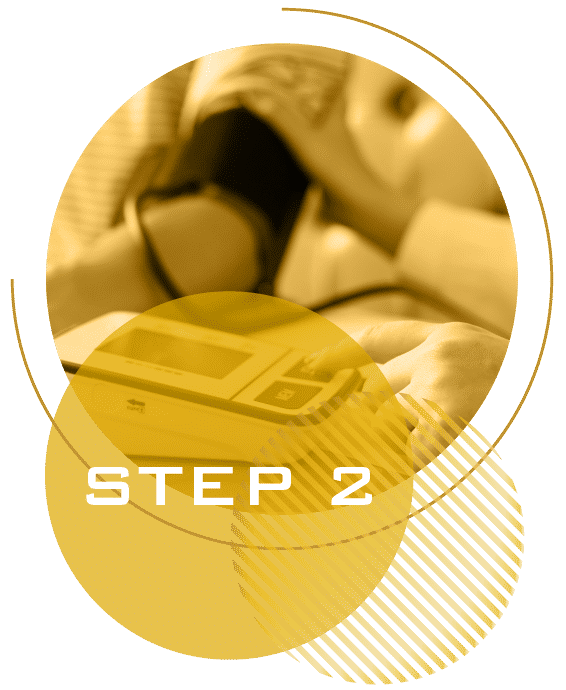
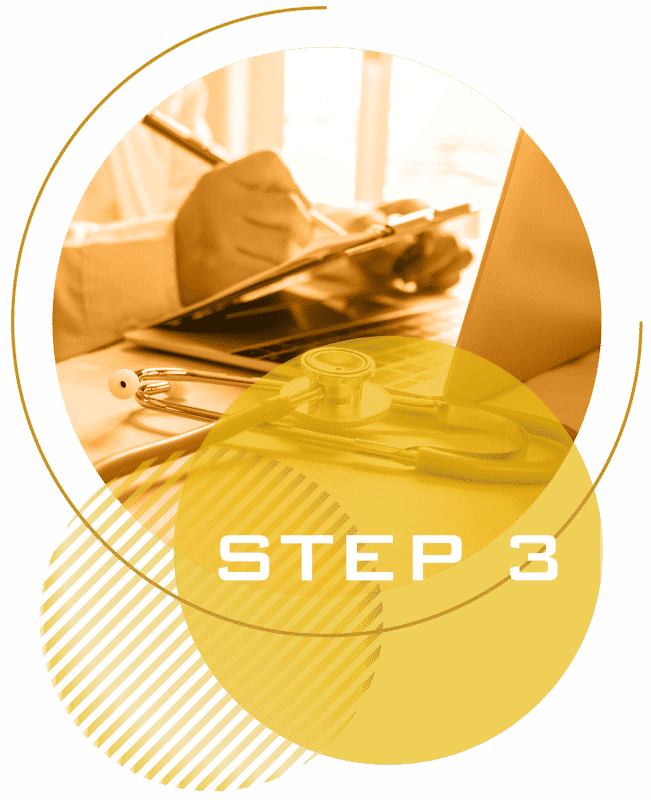
STEP 3
Think about how your decision could impact the behaviour and feelings of your colleagues, if appropriate. Could this upset those around you? Could it have a negative impact on them? It’s important that you can demonstrate good teamwork, and be a supportive outlet for your colleagues.
STEP 4
Consider your level of expertise when working as a junior doctor. Are you qualified to make this decision, or would it be better to consult someone more senior? The assessors want to be able to see that you have the wisdom and foresight to understand your own limitations, and not to try and take on tasks that you aren’t prepared or ready for. Try and be pragmatic. Think about whether the action that the answer option is demanding is realistic and possible at that time.
When answering the second part of the test, you should take a similar approach. In this test, you won’t need to rank the options, but you will still need to provide the three best responses – and the above framework should help you to do this.


PASS YOUR FPAS SJT

- An in-depth explanation on how to answer all of the FPAS SJT questions.
- How to demonstrate your understanding and knowledge of medical ethics
- Sample scoring criteria.
- Why ethics are so important for medical professionals.
- Tips and tricks on how to separate good answers from bad.
- How to identify subtle ranking nuances.
- The importance of ranking accurately and efficiently.
- Sample questions and how to answer them successfully.
- Crucial advice on how to decipher the top three answers.
- Guidance and tips on which answers to avoid.
- How to work out WHY you should choose certain answers.
- The merits of each answer, and the disadvantages.
Sample FPAS SJT Questions
To help you get a better understanding of what a Foundation Programme Application System Situational Judgement Test involves, let’s take a quick look at a few sample questions.
FREE | 2 Questions
FPAS Situational Judgement Test Practice Questions
Rank the answer options from 1-5, with 1 being the most appropriate and 5 being the least appropriate:
Question
You are a Foundation Year 1 (FY1), working on the ward round. You have spent the past half an hour dealing with a sick patient. When you arrive at your next patient – who is 80 years old and suffering from cancer – he starts to shout at you:
‘Where the hell have you have been? I’m hungry!’
‘I’m sorry sir, I was dealing with another patient.’
‘That’s not good enough. Can you fetch a senior doctor please? I don’t think you should be working on this ward anymore. Hopefully you’ll get the sack.’
Answer Options
A. Apologise to the patient, and go fetch a senior doctor to deal with the situation.
B. Wheel the patient to the exit doors, and wish him good luck. Rudeness will result in immediate discharge.
C. Leave the patient and go find a senior nurse. She will be able to offer you advice.
D. Explain to the patient that although you can appreciate his concerns, he is not the only
person on the ward. Assure him that he now has your attention.
E. Go fetch a senior doctor.
Choose the three best options ONLY. Do not try to rank the answers.
Question
One of your colleagues has recently been promoted within the hospital. Several of the other junior doctors are very unhappy about this, and there has been lots of discussion amongst your group of doctors about how unfair this is. The colleague in question is seen by many people to be lazy, incompetent and not particularly bright. You do not have much experience in working with this person, and therefore don’t have an opinion.
On Monday, you are all sitting in the break room, when the following conversation takes place:
Katie: ‘I can’t believe Jordan has been promoted, what an absolute joke!’
Jacob: ‘I know right, he’s not even that great a doctor. I work so hard, but here I am in exactly the same position, and there’s Jordan lording it over me now. It’s not fair.’
Gemma: ‘I think we should say something to senior management about this. Just…you know…go to them and say that we don’t think it’s fair and that Jordan doesn’t deserve that promotion.’
Katie: ‘Yeah, let’s do it!’
The three of them turn to you, and ask if you would also be willing to come and meet with senior management, to discuss the situation.
Answer Options
A – Tell your colleagues that Jordan was promoted for a reason, and that rather than complaining, they should try and improve their own methods of practice – if they want a promotion.
B – Agree to go with your colleagues to see senior management. Hopefully you can impress them and take Jordan’s job.
C – Decline to go with them, on the grounds that you have very little experience of working with Jordan.
D – Inform your colleagues that on the few occasions where you’ve worked with Jordan, he has been extremely professional, and demonstrated excellent clinical skills.
E – Tell your colleagues to stop whinging, and start doing, if they want a promotion.
F – Inform your colleagues that their jealousy of Jordan’s promotion is quite frankly pathetic.
G – Tell your colleagues that you are happy to go with them to see senior management, but that you won’t have much to add.
H – Inform your colleagues that complaining to management will look extremely unprofessional.
ANSWERS
Answering questions of this type is notoriously tricky. You need to think carefully about each answer option, and the pros and cons.
Below we’ve broken down how to answer this question, with rationale behind every decision:
1 – D. Explain to the patient that although you can appreciate his concerns, he is not the only person on the ward. Assure him that he now has your attention.
Explanation: This is the best response to the situation. The patient is behaving unreasonably. If his behaviour still persists following your explanation, then you can move onto option A – but the best immediate course of action is to try and reassure the patient yourself.
2 – A. Apologise to the patient, and go fetch a senior doctor to deal with the situation.
Explanation: This is the second best response to the situation. You should try to take responsibility first, before calling a senior doctor, but at least here you are apologising and providing a solution to the issue.
3 – E. Go fetch a senior doctor.
Explanation: This is the third best option, although it’s not a great response. You aren’t apologising to the patient, or attempting to deal with the situation yourself.
4 – C. Leave the patient and go find a senior nurse. She will be able to offer you advice.
Explanation: This is the fourth best option, but it’s not a good response. You cannot just leave the patient on his own while you go to consult a nurse, without apologising or attempting to explain what is going on.
5 – B. Wheel the patient to the exit doors, and wish him good luck. Rudeness will result in immediate discharge.
Explanation: This is, by some distance, the worst option. This is not how you would deal with a sick patient.
A, C, H
Explanation:
The best thing to do in this scenario, is to refuse to go. Not only do you not have experience of working with this person, but option H is correct – complaining to management about a promotion will make you look extremely unprofessional. Option A is the best response.
You are encouraging your colleagues to try and better their practice, instead of undermining someone else. C is also acceptable. As the question states, you have little experience of dealing with Jordan and therefore it would be unfair for you to pass negative comment on him.

Pass Your FPAS SJT. First Time.
Crafted for everyone, no matter your skill level or background, this download was made to help you achieve one goal: pass your assessment.
WHAT WILL YOU LEARN?
Scoring Criteria
Essential information about how you will be assessed during a FPAS SJT assessment.
UP-TO-DATE FOR 2024
All exercises have been verified by our assessment panel experts for the 2024 tests.
PRACTICE SAMPLE TEST QUESTIONS
Step-by-step information on how to pass the FPAS SJT.
FULLY-WORKED SOLUTIONS
Solutions for all questions so you can be confident in learning and improving your score.
INSIDER SECRETS
Insider tips on how to answer the questions and a breakdown on how you will be scored.
SCORE-BOOSTING STRATEGIES
Get ahead of the competition with unique and proven strategies 16 years in the making.
Customer Success Stories
Having helped 1,000s of people pass their assessment tests for over 16 years, it is no wonder our customers love us…

Perfect way to prepare. Doing these tests has helped me get through the first hurdle.

The book has plenty of questions and allows you opportunities to practice thoroughly.

Really helped me understand more about these types of tests, and also the sort of things you should look out for when answering e.g. safety, risk assessment etc. I liked how the answers were explained also rather than just given to you, as I found quite often some answers to be very similar to each other, and only once I had read the explanations did I realise the reasoning for their order.

The judgement test book is amazing corrected some of the priorities that i would of placed in the order i thought was correct, this has given more of an insight into what I could possibly face in the day to day environment.

WHAT’S INCLUDED IN YOUR DOWNLOAD?
Complete guidance to ensure you pass the selection tests.
- 300 sample test questions, with in-depth explanations.
- Two different types of situational judgement question.
- Insider tips and tricks on how to impress the assessors.
- Questions which mirror the real-life assessment, to help you prepare for
your dream career.
- Detailed explanations, to help you see where you went right or wrong.
- Insider tips and tricks for answering the questions.
- How to boost your score, using quick and concise strategies.
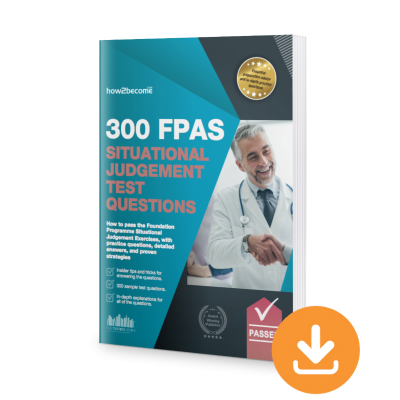
✓ 30-Day Money-back Guarantee
Did you know? All orders with How2Become are protected by our 30-day money-back guarantee. What ever the reason…or no reason at all…you can have your money back if this resource isn’t right for you (see our terms for full details).
WHY BUY WITH HOW2BECOME?
CREATED BY THE EXPERTS
PROVEN TRAINING
EXCLUSIVE FREE BONUSES
Firstly, these guides are created by us and our team of experts – we have all the answers to your questions and will help you succeed (like we’ve been doing for the last 16 years), we update our material frequently and you can contact us at any time with any questions you have.
Secondly, we provide exclusive bonuses with all our products that you won’t find anywhere else. These bonuses include free guides, powerful online testing suites and more!
Finally, our guides and training just work. Take a look at our TrustPilot page where you will see our rating of 4.9/5. There, our customers share their positive buying experiences and more importantly the time-saving success our resources have given them (hint: they passed their assessment).
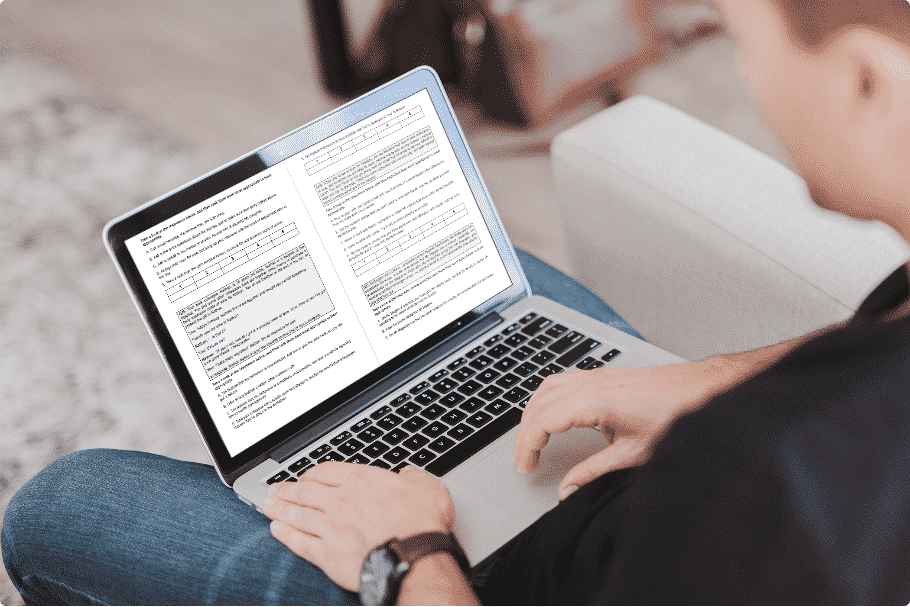
Learn how to PASS YOUR ASSESSMENT
We’ve helped 1,000s of aspiring applicants in their journey to succeed in a new career. Trust the UK’s #1 careers and education specialists to help you secure your role.
Get instant access »“Great variety of question types, exposes areas of weakness and gives you the means to improve. Clear and concise. Confidence builder. Great practice!”

